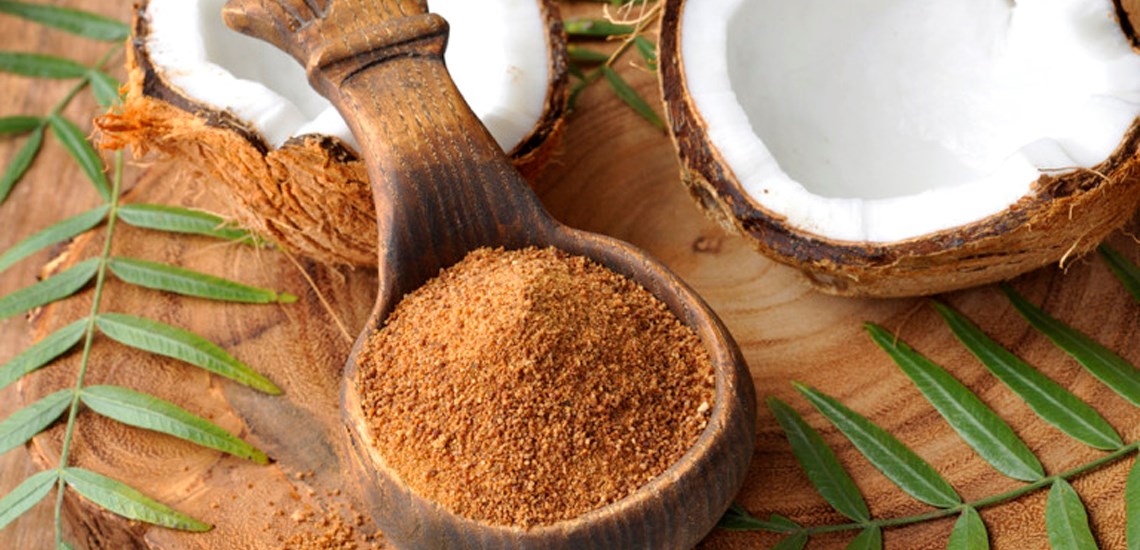Coconut sugar

-
Coconut sugar comes from the sap of the cut flowers of the coconut palm.
-
It does not contain the actual coconut fruit, the part from which most beneficial coconut products are derived.
-
Coconut sugar is lower than table sugar on the Glycemic Index (GI), which ranks carbs on how they affect your blood sugar (glucose).
-
While standard table sugar is pure sucrose, coconut sugar only contains about 75 percent sucrose. The other 25 percent is composed of nutrients, fiber, and other “good stuff.” So for the same amount of sugar, you’re consuming less of the “bad stuff” and simultaneously increasing your nutrient intake!
-
Coconut sugar and coconut nectar contain a fiber known as inulin. This fiber may help slow glucose absorption, offering an alternative for those dealing with diabetic concerns.
-
Coconut sugar contains healthy fats that are known to help prevent high cholesterol and heart disease.
-
It contains trace amounts of vitamin C, potassium, phosphorous, magnesium, calcium, zinc, iron and copper.
-
Coconut sugar also provides small amounts of phytonutrients, such as polyphenols, flavonoids and anthocyanidin, and antioxidants.
-
You'll also find the B vitamin inositol, often used as a mood booster, in coconut sugar.
-
Coconut sugar is an unprocessed product that comes straight from the coconut tree, so you never have to worry about whether animals were harmed in the making of your sweet treats!